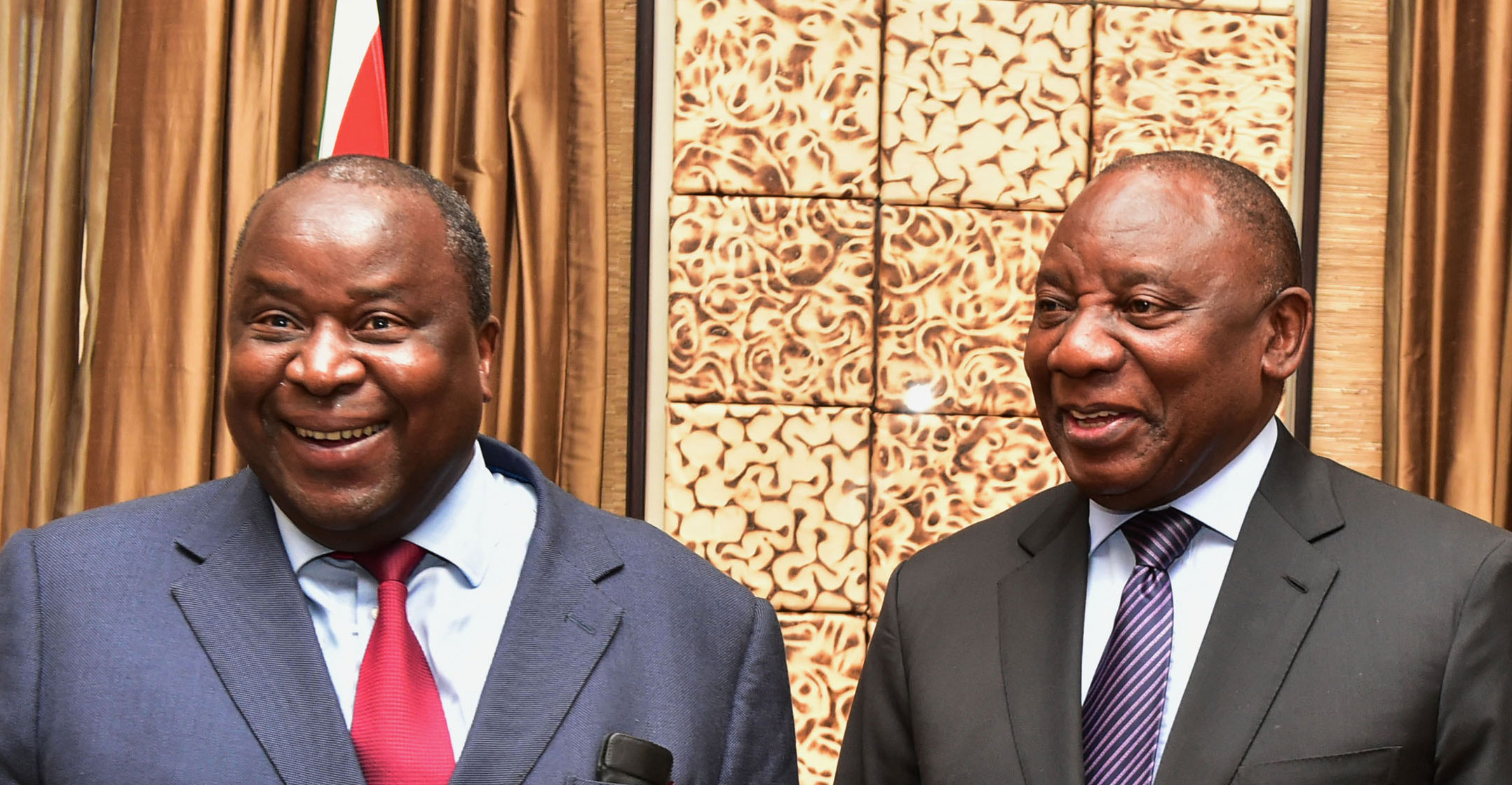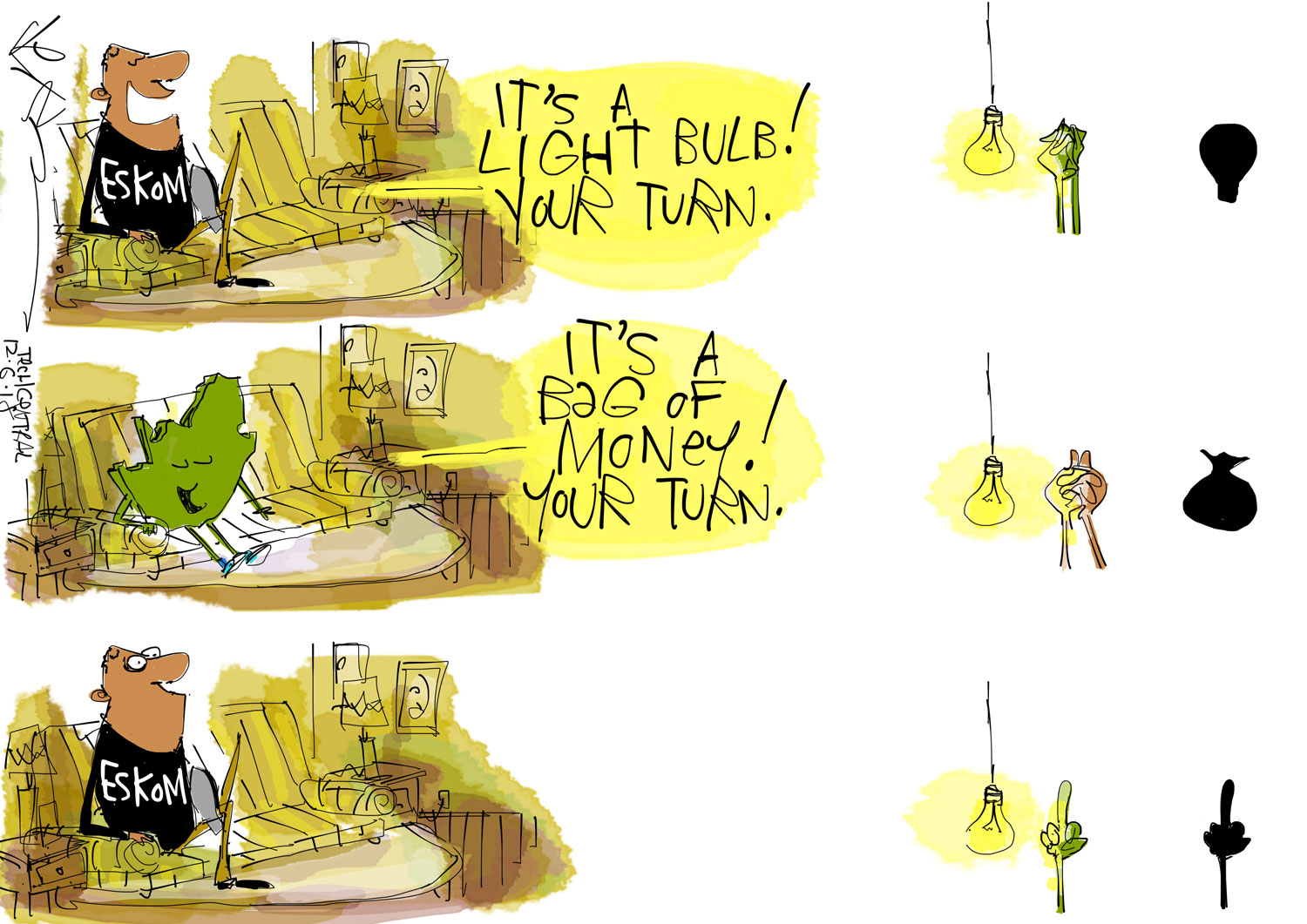
Finance minister Tito Mboweni is looking for a way to keep the country’s main power producer from sucking the life out of the economy.
Debt at Eskom has ballooned to R419-billion and it’s struggling to supply South Africa with enough power even as it weighs on finances, with most of its borrowings guaranteed by the state. The department of public enterprises says the utility needs a cash injection to survive. Credit-ratings companies say Eskom is the biggest threat to an economy that hasn’t expanded at more than 2% since 2013.
Investors will be looking for Mboweni to come up with a plan when he unveils the budget on Wednesday, but aren’t hopeful for a quick solution. Revenue collection is likely to undershoot targets again, economic growth is sluggish and unemployment is high, limiting the finance minister’s room to help the producer by levying higher taxes.
While Eskom has asked the government to take on R100-billion of its debt, that’s “off the table” because it would add as much as two percentage points to South Africa’s debt-to-GDP ratio, said Gina Schoeman, an economist at Citibank South Africa. It could also lead to an immediate downgrade by Moody’s Investors Service, she said, putting South African debt in junk territory and making it uninvestable for some of the world’s largest funds.
Having the government take on Eskom’s debt-servicing costs instead of actual debt would be “the most elegant middle ground”, said Goolam Ballim, chief economist at Standard Bank Group.
Slow growth has led South Africa to repeatedly miss its revenue-collection targets, and that forced national treasury last year to resort to the first increase in VAT since 1993 to generate funds. Despite that, the treasury in October cut its estimate for collection in the year to end-March by 2% to R1.35-trillion.
Budget deficit
South Africa’s budget deficit will probably be 4.1% of GDP in the financial year through to March 2020, according to the median estimate of 13 economists surveyed by Bloomberg. That’s slightly better than national treasury’s October forecast of 4.2%.
“The bad news is that the situation is likely to get worse,” PwC said in an e-mailed note. Revenue will be R10-billion lower than the October estimate because of weaker VAT, corporate and personal income tax collections, the company said.
Any fiscal slippage beyond that may test past tolerance from Moody’s to negative budget developments.
 Moody’s has “shown an appetite to accommodate near-term worsening in public finances” if accompanied by growth-enhancing political and economic policies, Standard Bank’s Ballim said.
Moody’s has “shown an appetite to accommodate near-term worsening in public finances” if accompanied by growth-enhancing political and economic policies, Standard Bank’s Ballim said.
Still, of 11 economists who took part in a Bloomberg survey, eight say the ratings company probably won’t downgrade South Africa to non-investment grade this year.
So, even as investors look for a support package for Eskom, Mboweni will probably just “kick the can down the road”, said Jeffrey Schultz, an economist at BNP Paribas South Africa. State funds are unlikely to be committed to the utility until the energy regulator sets its electricity tariffs and the government finalises its restructuring plan, which may be opposed by labour unions and difficult to implement before elections on 8 May, he said. — Reported by Prinesha Naidoo, with assistance from Sarina Yoo, (c) 2019 Bloomberg LP




